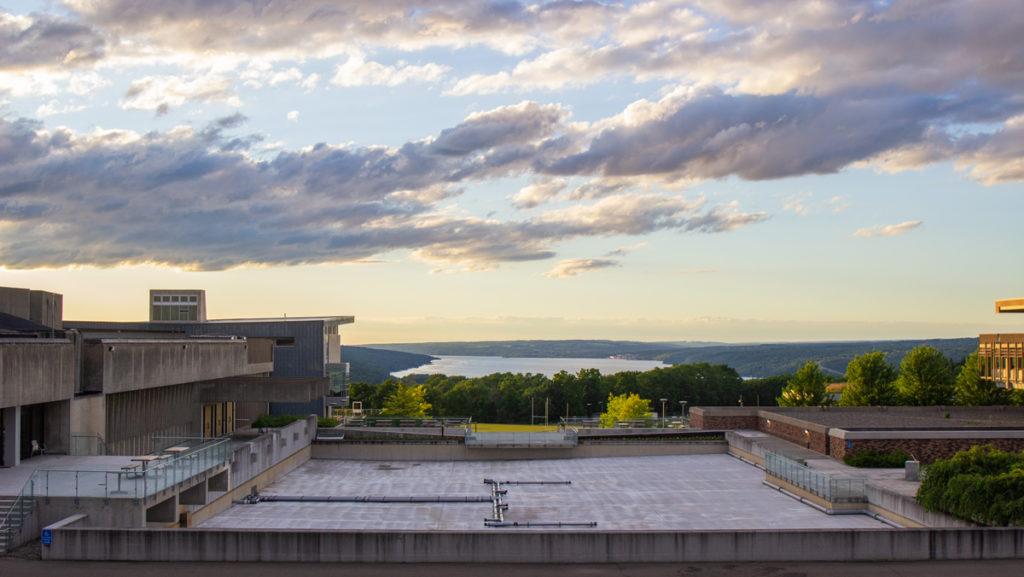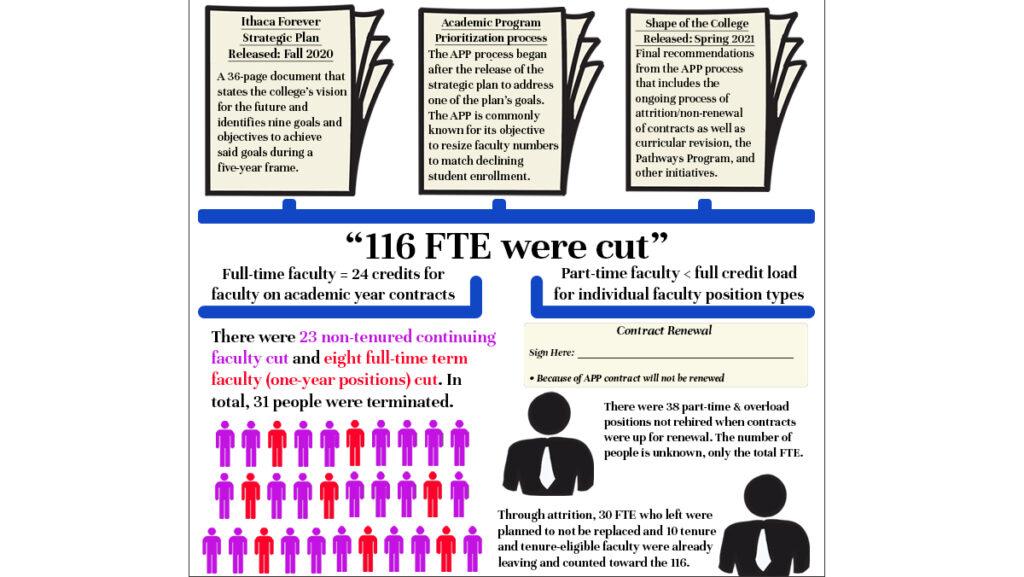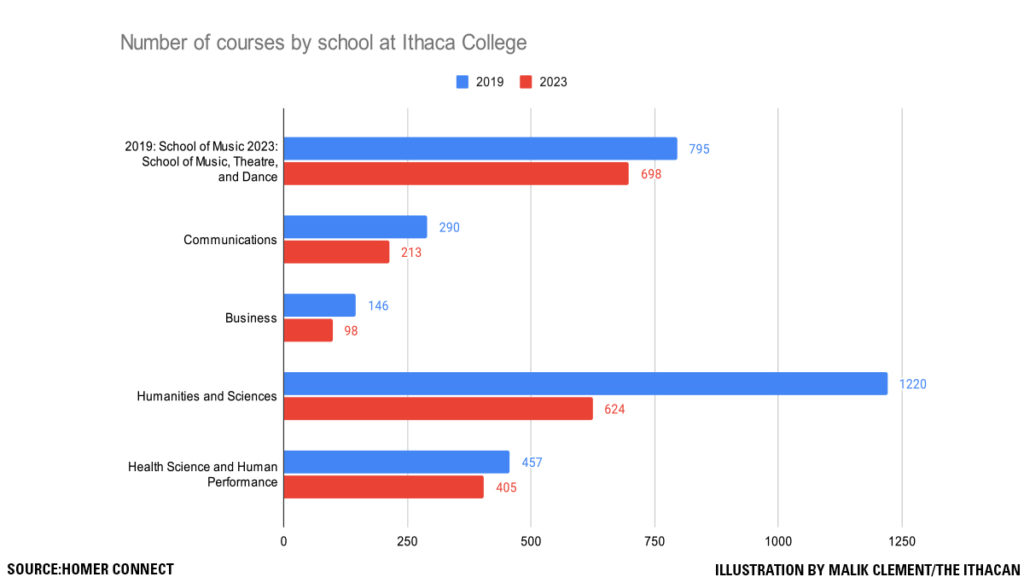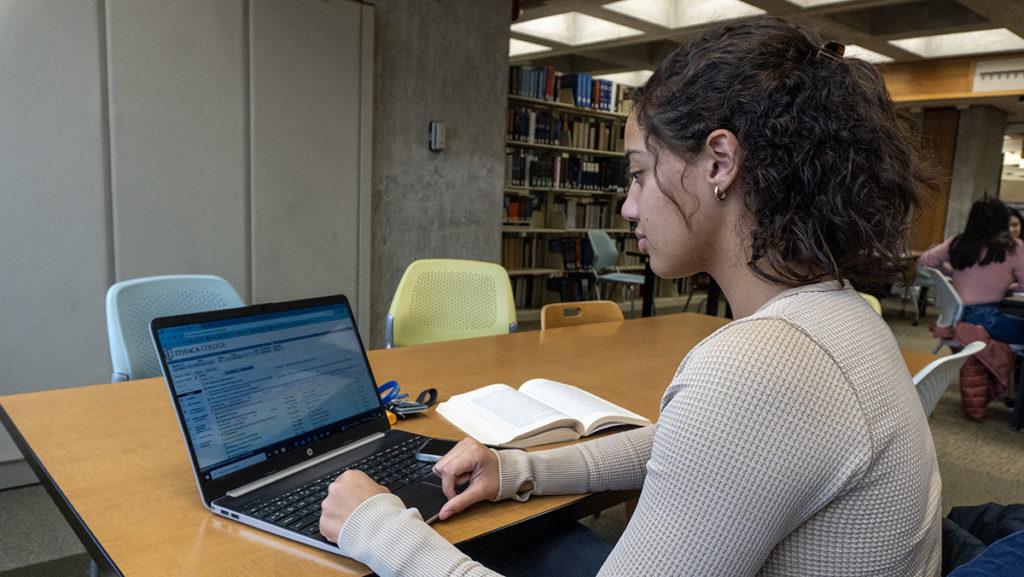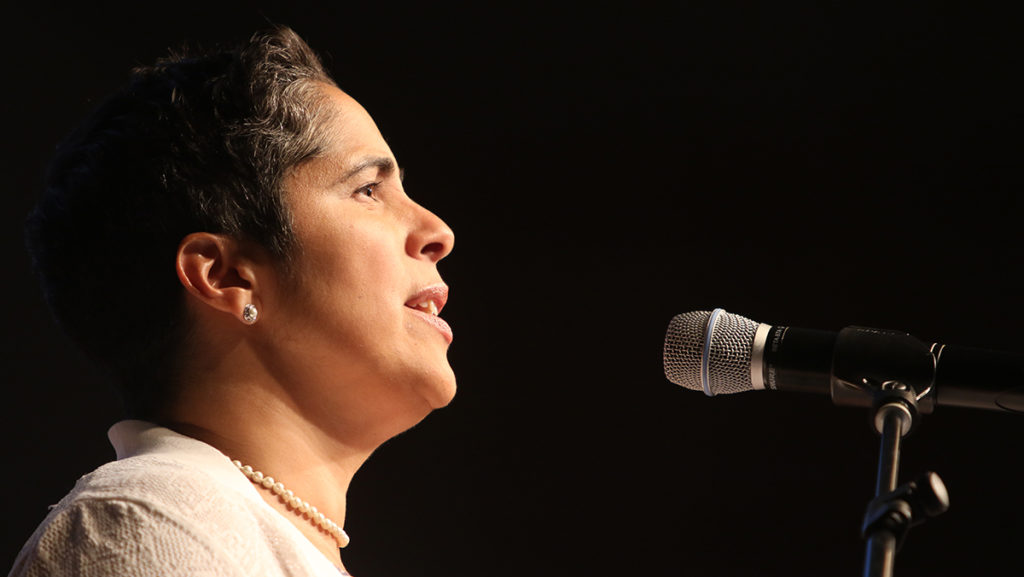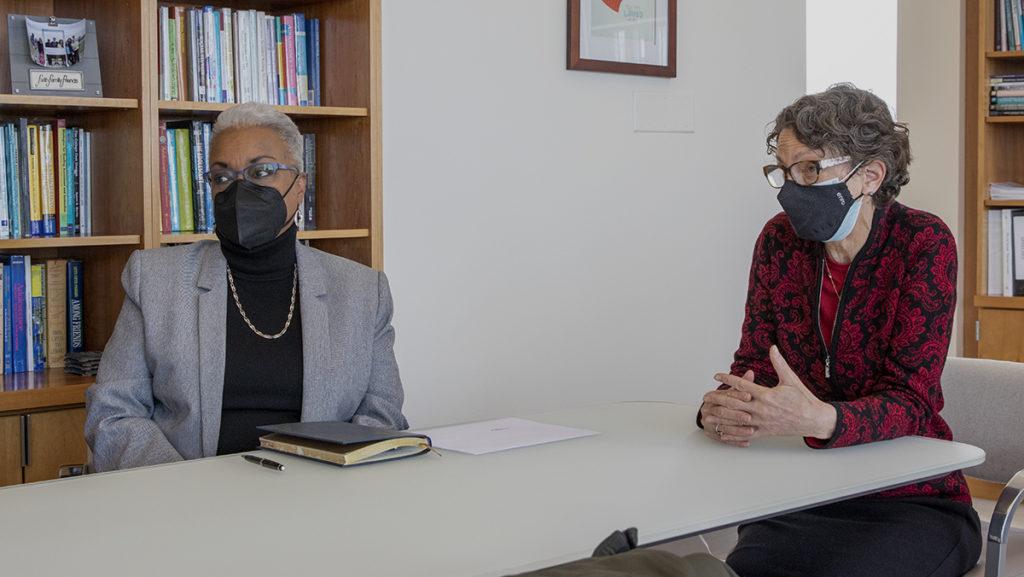Members of the Senior Leadership Team (SLT) discussed faculty and program cuts with students in a meeting Jan. 19.
The Student Governance Council (SGC) hosted the meeting in response to pushback from campus community members regarding the upcoming faculty and program cuts. This was the first meeting where students were able to ask the SLT questions about the Academic Prioritization Process (APP). In October 2020, La Jerne Cornish, provost and senior vice president for academic affairs, announced that 131 full-time equivalent (FTE) faculty positions will be eliminated from the college and that entire programs and departments may be discontinued. The “Shape of the College” document, released Jan. 13, recommended the elimination of 116 FTEs and the discontinuation of 26 programs, departments and majors. There will be a feedback period, and the document will be delivered to President Shirley M. Collado and Cornish in February. Final decisions regarding program and faculty cuts will be made by the end of February.
The SLT members at the meeting were Collado; Cornish; Bill Guerrero, vice president for finance and administration; Rosanna Ferro, vice president for student affairs and campus life; Laurie Koehler, vice president for marketing and enrollment strategy; Hayley Harris, vice president for human resources; Melanie Stein, dean of the School of Humanities and Sciences; Brad Hougham, associate provost for faculty affairs; and Jeane Copenhaver-Johnson, associate provost for academic affairs.
Discontinued Programs
Copenhaver-Johnson said students in programs or majors that are scheduled to be discontinued will be able to complete the program requirements and will be supported by the college in graduating out of the program. She said the last cohort of students in the discontinued programs will be the incoming Class of 2025.
“Your program is not ending,” she said. “What’s happening is that we will begin closing the door to new students entering those programs, and we will continue to offer you the program that you have.”
Koehler said the college is notifying students who have applied to programs that are recommended to be discontinued so they can decide to continue in that program or change to something else.
Faculty Cuts and Support
Harris said the Office of Human Resources is working to put together financial, mental health, immigration and relocation resources for faculty members who are being cut. She said the department is working with other institutions across the country to find positions for faculty members.
Cornish said it was important to the Academic Program Prioritization Implementation Committee to prioritize faculty of color to ensure that they were not disproportionately affected by the faculty cuts. Hougham said one of the APP’s guiding principles is protecting tenured and tenure-track faculty and that principle protected a lot of faculty of color. The college’s Faculty Council has discussed protections for faculty of color due to campus community members fearing they would be disproportionately affected by the cuts.
A student submitted a question asking why more members of the campus community were not involved in the APP and why student activism was discredited.
“I have been consumed since March in our ability not only to reopen our campus but to make sure that our employees, our workforce, all of our faculty and staff have regular contact with us, regular meetings with us, all the data that they wanted,” Collado said.
Collado said that she welcomes disagreements and activism from students, but said it should be done in a respectful way.
“I’m your president, you should hold me accountable for serving students and leading the way,” she said.
She said that she and other administrators have participated in and encouraged activism from students.
“I love the fact that our students want to engage, let me be clear about that,” she said. “I’m not going to censor people and I’m not going to manage you that way. But students have access to me and this entire team, so I am concerned that there’s a sense of resistance or that we’re not acknowledging or we’re not engaging.”
She said she was confused by the assumption that faculty and staff have not gotten all the information that they wanted. In the past, faculty members have voiced concerns regarding a lack of transparency from the administration. She stressed that difficult decisions had to be made over the past few months, including furloughing at least 264 staff members.
The Open The Books Coalition was formed to protest the cuts and call for financial transparency. Over the course of the fall semester, the group held a protest and left signs and messages in chalk and marker outside of the Peggy Ryan Williams Center. Collado condemned the display for vulgarity and called it unacceptable.
Collado sent an email to students Jan. 20 with dates and topics for Spring 2021 open office hours. The meetings will be 5–6 p.m. Jan. 27 on financial health and sustainability, 12:10–1:05 p.m. Feb. 25 on the APP process, 3–4 p.m. March 31 on student activism and 5–6 p.m. April 20 on leading as a college president. There is an All-Student and Family Meeting 6–7 p.m. Jan. 28 to discuss the APP, Spring 2021 and health and safety updates. There will also be an All-College Gathering at 12:10 p.m. Feb. 9.
Another student asked how the administration will be taking part in cuts. Collado said administrators have taken salary cuts and have not taken increases over the past year. The SLT still has not disclosed their current salaries despite repeated requests from The Ithacan and other members of the campus community.
Other Questions
Koehler said the college is expecting approximately 2,500 students living on-campus for Spring 2021. She said that the initial estimate was 3,800 students, and that there are usually approximately 4,400 students living on-campus.
Guerrero said the college is expecting $6.7 million from the next federal stimulus package. He said he is working to verify what portion of that will go to student-centered programs and what will go to institutional support for college-run programs. He said if $4 million is allocated to institutional support, it would not cover all of the college’s COVID-19 related expenses. These expenses are for testing, meals and hotels for students quarantining, and he said the budget for COVID-19–related expenses is approximately $7 million.
Collado also addressed Class of 2021 commencement and said decisions regarding how commencement will be held will be made over the next couple of months. She said the last choice is having a virtual commencement.
“We are tasked with ensuring that Ithaca College continues to not only survive, but to thrive in years to come,” she said.
In a statement to The Ithacan, the Open the Books Coalition said it was disappointed the meeting was held as a webinar rather than the face-to-face format on Zoom.
“By using this meeting format, the Senior Leadership Team is demonstrating a lack of interest in a real conversation, and in turn, real shared governance,” the statement said.
The statement said that there are many unanswered questions regarding the faculty and program cuts and that there is a need for more answers.
“We hope the administration would consider having an unmoderated, raw conversation with the student body soon,” the statement said.


